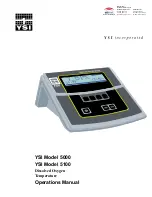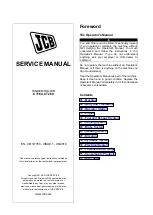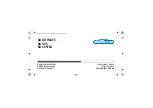
Page 23
CROSSROBICS 1650 LE CONSOLE
THE FITNESS TEST PROGRAM
Understanding Submaximal Exercise Testing
Before using the StairMaster
®
Crossrobics
®
1650 LE for submaximal exercise
testing, it should be noted that all submaximal fitness tests make several
assumptions:
•
That a steady-state heart rate is obtained for each exercise
workload.
•
That a linear relationship exists between heart rate, oxygen
uptake and workload.
•
That the maximal heart rate for a given age is uniform.
•
That the mechanical efficiency of the physical activity performed
(i.e., oxygen uptake at a given workload) is the same for
everyone.
It should be kept in mind that any one or all of the above mentioned
assumptions may not be met during a submaximal exercise test. If for any
reason one of the assumptions is not met, then errors in predicting VO
2 max
will
occur.
Unfortunately, it is often quite difficult to meet all of the requirements
for the four listed assumptions. For example, exercising at a given workload for
only a few minutes can involve an insufficient amount of time for many indi-
viduals to achieve a true steady-state. To ensure that a steady-state has been
achieved, the heart rate should be measured after two minutes of exercise at
a given workload and again after the third minute of exercise at that workload.
These two heart rates should then be compared. If a difference of more than
five beats per minute between the two is found, the subject should continue to
exercise at one-minute intervals at the same workload until two successive
heart rates differ by less than five beats per minute.
It is also important that the submaximal heart rates obtained be
between 115 and 150 beats per minute, because it is within this heart rate
range that a linear relationship tends to exist between heart rate and oxygen
uptake or workload for most adults. When the heart rate is less than 115,
many external factors (e.g., talking, laughing, apprehension, etc.) can greatly
influence heart rate. Once the heart rate reaches a level between 115 and
Summary of Contents for Crossrobics 1650 LE
Page 1: ...CROSSROBICS 1650 LE OWNER S MANUAL...
Page 82: ...Page 73 Figure 7 Parts Needing Periodic Lubrication FIGURES...
Page 83: ...Page 73 Figure 7 Parts Needing Periodic Lubrication FIGURES...
Page 84: ...Page 74 Figure 8 Left Side View FIGURES...
Page 85: ...Page 75 Figure 9 Right Side View FIGURES...
Page 86: ...Page 76 Figure 10 Reduction Belt Tension FIGURES...
Page 87: ...Page 77 Figure 11 Handle Assembly Top View with Seat and Seat Tray Removed FIGURES...
Page 88: ...Page 78 Figure 12 Console Assembly FIGURES...
Page 89: ...Page 79 Figure 13 Cover Fastener Location FIGURES...
Page 90: ...Page 80 Figure 14 Cover Fasteners FIGURES...
Page 91: ...Page 81 Figure 15 Top View of the Cover Seams FIGURES...
Page 92: ...Page 82 Figure 16 Weight Stack Belt Assembly FIGURES...
Page 93: ...Page 83 Figure 17 Weight Stack Belt Path FIGURES...
Page 94: ...Page 84 Figure 18 Guide Rod Assembly FIGURES...
Page 95: ...Page 85 Figure 19 Weight Stack Assembly FIGURES...
Page 96: ...Page 86 Figure 20 Pedal Arm Spring Assembly FIGURES...
Page 97: ...Page 87 Figure 21 Master Link FIGURES...
Page 98: ...Page 88 Figure 22 Drive Chain Assembly FIGURES...
Page 99: ...Page 89 Figure 23 Drive Shaft Assembly FIGURES...
Page 100: ...Page 90 Figure 24 Lower Reduction Shaft Assembly FIGURES...
Page 101: ...Page 91 Figure 25 Pivot Assembly FIGURES...
Page 102: ...Page 92 Figure 26 Floating Pulley Assembly FIGURES...
Page 103: ...Page 93 Figure 27 Upper Spring Stop Assembly FIGURES...
Page 104: ...Page 94 Figure 28 Chain Tensioning Idler Sprocket Assembly FIGURES...
Page 105: ...Page 95 Figure 29 Left Pedal Arm Assembly FIGURES...
Page 106: ...Page 96 Figure 30 Main Cable Routing Diagram FIGURES...
Page 107: ...Page 97 Figure 31 Alternator and Resistor Mounting FIGURES...
Page 108: ...Page 98 Wiring Diagram 1 Main Cable Assembly Connections WIRING DIAGRAM...
















































